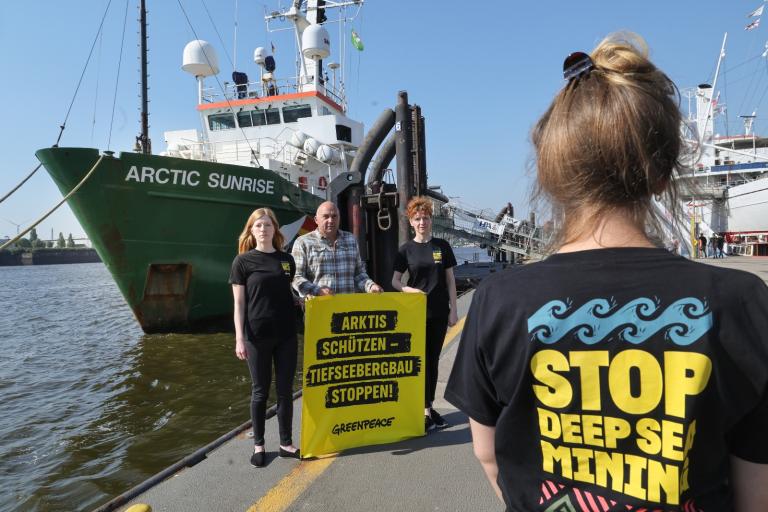There’s been a bit of extremely stupid chatter in D.C. lately suggesting that somehow the financial storm could get in the way of action to combat the climate crisis.
So I picked up my phone at Greenpeace and asked Robert Pollin and Heidi Garrett-Peltier of the University of Massachusetts to compare the economic effects of bailing out Wall Street to investing in the green economy (they wrote a “Green Recovery” report for the Center for American Progress), and then wrote up their results in an article for The Nation, “The Next Bull Market.”
The take-home point: investing in a green economy will conservatively produce about twice the jobs that throwing money at Wall Street will. Here are a couple of excerpts from the article, but I think you’ll find the the full article worth reading: it provides some really solid numbers on which to base a progressive, green response to the financial crisis. (Also, green-jobs guru Van Jones ate it up when I discussed it with him at the D.C. Green Jobs Day of Action.)
“There’s always a bull market somewhere,” goes the old Wall Street saw, and it’s a principle that Washington needs to keep firmly in mind as it contemplates its trillion-dollar financial bailout. Today, that bull market is in green investing, which includes everything from wind and solar power to forest conservation.
Since 2001, the wind industry has grown 339 percent; the solar industry has grown a whopping 579 percent; both are projected to continue their blockbuster double-digit annual growth into the foreseeable future. In contrast, the Dow Jones average has climbed just 2 percent during the same period, and is only barely hanging on at those levels because of the artificial boost produced by talk of the bailout …
But the biggest benefit of this green recovery will come from solving a looming financial threat as great or greater than the current one: global warming.
Conservative estimates place the costs of increased disease, flooding, drought, extreme weather, insect infestation and other impacts of the climate crisis at somewhere between 5 percent and 20 percent of global economic output. For the United States alone, that adds up to a conservatively estimated $3.8 trillion drag on the economy — every single year. A big green investment now would take a huge bite out of the climate problem while we wait for the political stars to align behind comprehensive global warming legislation.
Read the full article here, and then please share your thoughts in the comment section.

